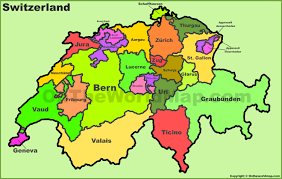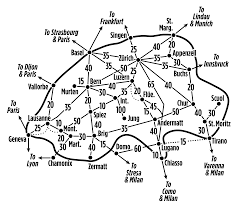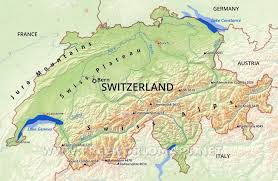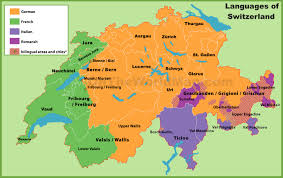Mountain to Mountain
Alpenhorns and Flag Throwing
Festivals remind everyone of the centuries when Switzerland's resources were mainly pasture. Poor pasture. Mountain pasture. Somebody would take the cows up for the summer grazing, milking them and making cheese (the only way to have a marketable product). These solitary people communicated with alpenhorns and flag waving from one mountain side to the other, across the steep valleys. Simmental valley, for instance, only gets four hours of sunlight a day because it's so deep.
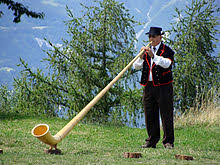
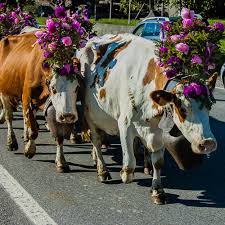
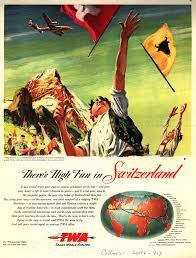
Person to Person
International Organizations
Because there are four official languages in Switzerland, almost everybody is multilingual to some degree. A professional almost certainly will be, and many if not most shopkeepers speak English, which was very useful to me, who struggles with languages. In Geneva, where there are so many international organizations, about 40% of the population is non-Swiss, not least because the Swiss prefer to live where this is not so. Commonly, internationals use English as a mutual language even though French is the official language of the Canton.
My cousin, Susan, lived in Switzerland for most of her life as a professional simultaneous interpreter. She contracted to serve at meetings all over the world, but usually in Geneva and Brussels, for the International Organizations. To be a simultaneous interpreter, it isn't enough to be fluent; you must be able to listen to one language and at the same time speak the interpretation in another. She said many people were more fluent than she was, but couldn't master the simultaneous knack of it. Her languages were English, French, and German, officially, but she could manage in Spanish. Although she worked at it for years, she never managed to bring her Russian up to professional standards. Once, when we traveled, together, a hotel clerk mistook me for her, and apologized, saying, "I thought you were the lady with the excellent German."

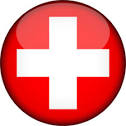
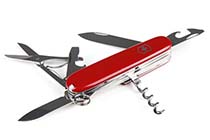 Tool to get at knowledge
Tool to get at knowledge
